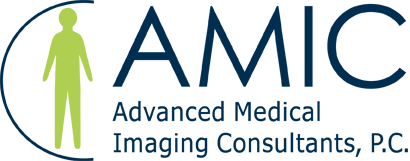Medical imaging scans are essential tools for diagnosing and monitoring various health conditions. MRI, CT scan, X-ray, and ultrasound provide critical insights that help your physician create effective treatment plans. Proper imaging scan preparation is important for accurate results and a smooth experience.
Types of Scans
Medical imaging scans, such as X-rays, CT scans, MRIs, PET scans, and ultrasounds, play crucial roles in detecting, diagnosing, treating, and monitoring diseases and conditions. But what makes these scans different?
X-Ray: An X-ray produces images of the structures inside the body by passing X-ray beams through the body. Like CT, contrast agents may be used in X-rays to highlight the image of certain bodily structures and a small amount of radiation is used.
CT: Computed tomography (CT Scan) is a diagnostic imaging procedure that uses X-rays and computed technology. CT scans are used to examine issues related to blood vessels, abdominal issues, tumors, and guiding cancer treatment. CT scans do use a small amount of ionizing radiation.
MRI: Magnetic Resonance Imaging (MRI) is an imaging test that uses powerful magnetic fields and radio waves to generate 3D images of organs, bones, and tissues inside your body. Unlike other imaging techniques, MRIs do not use ionizing radiation.
PET: A Positron Emission Tomography (PET) scan is an imaging test that detects metabolic function in tissues and organs. It requires injecting a safe, radioactive chemical called a radiotracer into a vein. PET scans are mostly used for cancer detection and evaluating cancer treatment.
Ultrasound: Ultrasound uses high-intensity sound waves to create real-time images and videos of soft tissue and internal organs inside the body. Ultrasounds are most commonly associated with pregnancy, however doctors also use ultrasound for diagnosing conditions and guiding medical procedures.
Preparing for Each Medical Scan
MRI: Remove all metal objects, including jewelry and clothing with zippers; inform your provider about implants or claustrophobia, and follow any fasting instructions if required.
CT Scan: You may need to fast for several hours, especially if contrast dye is used; drink plenty of water afterward to help flush the dye from your system.
X-Ray: Wear loose, comfortable clothing without metal, and inform the technician if you’re pregnant or suspect you might be.
Ultrasound: Depending on the examined area, you may need to fast or drink water beforehand to keep your bladder full for clearer images.
Before your scan, it’s important to discuss with your physician if you take any medication, have any physical implants, or experience anxiety or claustrophobia. This will help guide your scan and ensure a comfortable experience and accurate imaging.
Post-Scan
After your medical imaging scan, follow any specific instructions your healthcare team provides. If contrast dye was used during a CT or MRI, drink plenty of water to help flush it from your system. For scans involving sedation, arrange for someone to drive you home and allow time to rest until the effects wear off. Be sure to monitor for any unusual symptoms, like allergic reactions, and contact your provider if you have concerns.
Advanced Medical Imaging Consultants has many partner locations that offer diagnostic imaging. Contact the location most convenient to you to schedule your important screenings!

